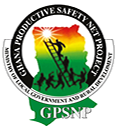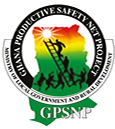The UNDP Sustainable Development Goal 1: “No Poverty” seeks to eradicate poverty in all forms. This goal remains one of the greatest challenges facing humanity.
Many people who are living in extreme poverty are still struggling for the most basic human needs. In her quest to reverse this, the Government of Ghana has embarked upon a good number of Pro-Poor interventions in order to reduce poverty, cushion the lives of the poor, the deprived, and the needy.
One of such interventions is the Ghana Productive Safety Net Project which is being implemented nationwide under the auspices of the Ministry of Local Government and Rural Development (MLGRD).
In pursuit of this, the country has been partitioned into 4 zones for Project implementation. The Government’s commitment is further enhanced in this Project as 80 Municipal/ District Assemblies are being used in the fore-front for direct implementation. One of the participating zones is Tamale Zonal Coordinating Office which is superintending over fifteen Municipal/ District Assemblies from three Regions (Northern, Savannah, and Oti).
Labour Intensive methodology is being used as the main mode for implementation. This has made it possible to employ 6,683 unskilled labour who are currently working on 62 sub-projects in the rehabilitation of selected feeder roads, dams /dugouts, and the establishment of climate change mitigation interventions (using cashew, oil palm and coconut trees).
Apart from fixing prioritised infrastructure (rural asset) for the people, they are also earning a total amount of GHc14,337,846.87 in the Tamale Zone only.
In addition to the provision of employment opportunities and the resultant financial benefits, execution of works is usually interspersed with capacity building and technical guidance which culminates into technology transfer to the beneficiary communities.
These include lining and pegging, stone pitching, camber formation, ditching, compaction, levelling, concrete mixing, seed nurturing, and transplanting among others constitute the major technology that is transferred to the local people who are employed to work on the feeder roads, dams/dugouts and the plantations( Climate change mitigating interventions).
It is gratifying to note that under the Tamale Zone 18,238 farmers have received a good quantity of cashew seedlings in support of one of the Government’s flagship programs, Planting for Export and Rural Development (PERD) in the 15 participating Municipal/ District Assemblies.
The Government and the Proponents of this Project, being mindful of the fact that such interventions do not last forever, has been innovative and carved out additional strategies to complement and consolidate the gains for these low-income beneficiaries.
To all intents and purposes, this extra effort could help leapfrog them from the quagmire of the ultra-poor state. Under the Tamale Zonal Coordinating Office (TZCO) of the Project, 70 communities from 10 MDAs have been selected for enterprise development.
A total number of 4,261 households from both LIPW and LEAP are benefitting from this extra assistance (Productive Inclusion) from LEAP and LIPW and are being imparted with additional knowledge in Life Skills, Basic Business Management Skills backed by mentorship a total amount of GHc4,687,100.00 as start-up capital for the application and use of the knowledge and skills imparted to them for sustainable enterprise development and improved livelihood.
Ghana Productive Safety Net Project indeed seeks to safeguard the plight and enhance the welfare of the poor and needy nationwide.
Communities under the Tamale Zonal Coordinating Office are no exception and the people are equally heaving a sigh of relief. Kudos to the Government of Ghana.


